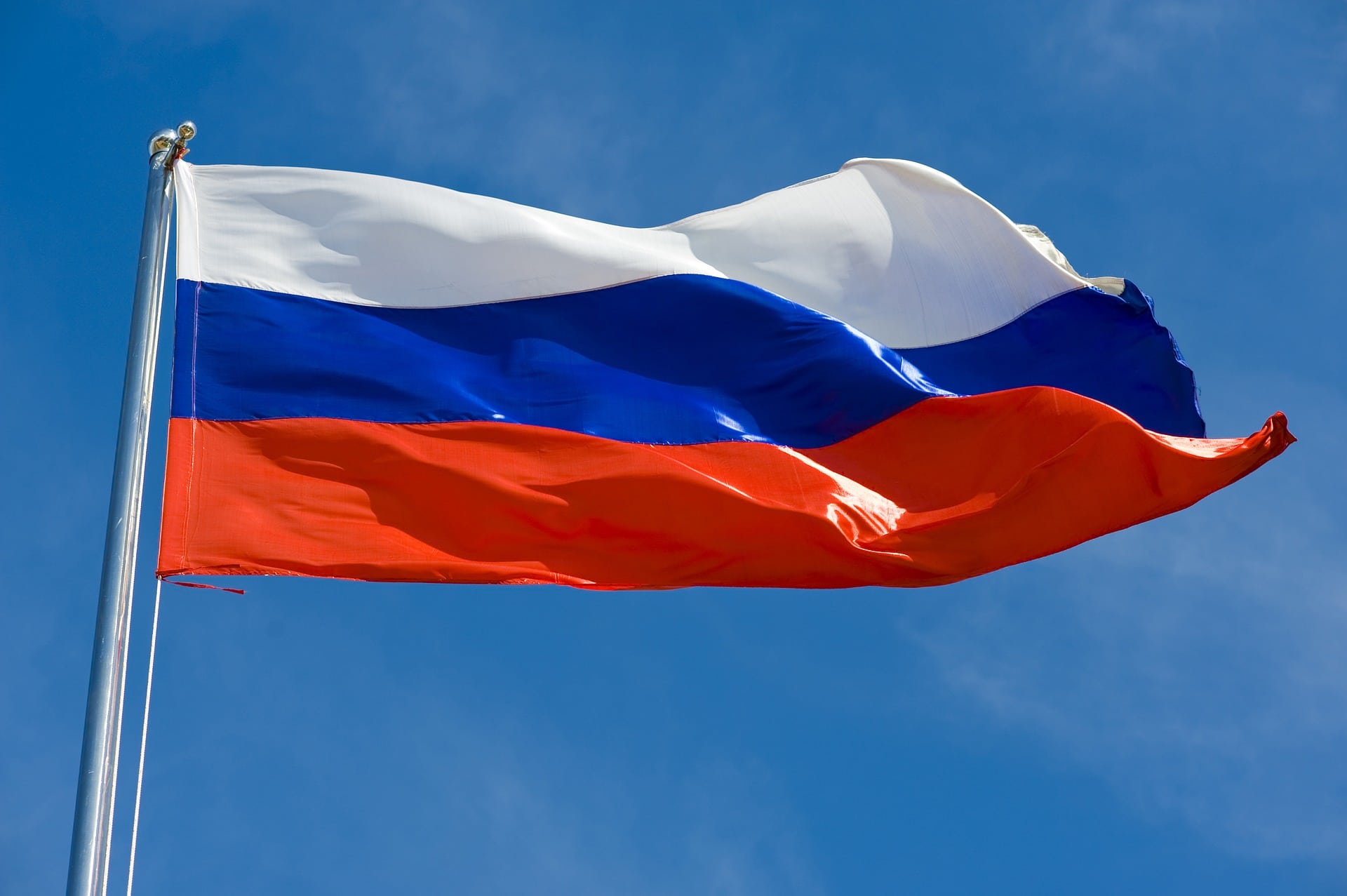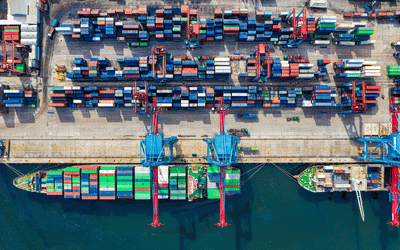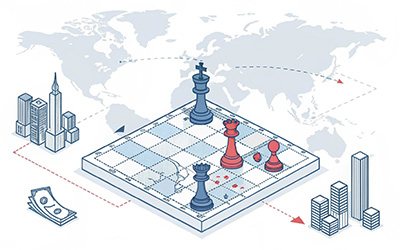Embargoes and sanctions at a glance: What is a trade embargo?
A trade embargo describes a list of restrictions and prohibitions that have been established in the context of economic sanctions for international trade. Such a decision is usually made at the UN, EU, or national level—often as a security measure. This is because the sanctioned individuals, institutions, organizations, and states are sometimes linked to terrorism or other serious violations of international law.
What embargo measures are in place?
If a trade embargo has been imposed, measures will be taken to regulate the movement of goods with certain countries. Restrictions will then apply to the import and/or export of specific goods. Specifically, the following are possible: prohibition and enforcement of extended export controls, which include special permits. If financial sanctions are in place, measures are also taken to make transactions involving assets more difficult or completely impossible for sanctioned persons and organizations—such as freezing funds in foreign banks.
How do I know if trade embargoes affect my business?
Sanctions list check prior to import and export
If you engage in international trade, decisions made by international organizations such as the United Nations and the European Union, as well as national regulations, can be of great importance to you. Changes to restrictions and bans are always published in the Official Journal of the European Union and the Federal Gazette. However, in order to identify possible trade embargoes that restrict, for example, the planned export or import of goods, a comprehensive sanctions list check is necessary – if only because even EU companies can be affected by US sanctions lists, for example, without there being any direct exchange of goods with US persons or companies.
To protect yourself in international trade, you must
- check lists of embargoes relating to persons, entities, or organizations
- lists of embargoes applicable to certain countries
- lists of embargoes relating to certain goods
in detail. The latter also include so-called dual-use goods. These are goods that can be used for both non-military and military purposes and are therefore suspected of being misused to circumvent trade embargoes.
What happens if a hit is found during the sanctions list check?
If one of your business contacts or destinations appears on a sanctions list, or if checking the lists results in a match for your goods, there may be trade embargoes that you need to be aware of. The nature of the sanctions and what exactly needs to be done depends on the specific sanctions list.
One possible consequence for trade is a ban on providing funds or economic resources to certain countries, individuals, and organizations. This, in turn, can result in an import or export ban. Other trade restrictions, on the other hand, aim to regulate imports and exports through licenses. These must be obtained from the Federal Office for Economic Affairs and Export Control (BAFA) or another authority and presented at customs offices.
Export, import, and transaction restrictions therefore create complex processes for companies involved in foreign trade. Extensive know-how, for example through training, ongoing updates of documentation, and time resources are required to ensure compliance with trade embargoes.
However, this should not deter you from participating in international trade – on the contrary! You can simplify the sanctions check with suitable software.
Legal security for your company - with SANSCREEN
With SANSCREEN, you can play it safe. Check your business contacts manually or automatically against daily sanctions lists. With detailed and audit-proof logs, you can provide complete proof of your compliance measures if required.
Where can I find further information on the current embargo regulations?
FAQ: Frequently asked questions about trade embargoes
What types of embargoes are there?
Trade embargoes can be distinguished according to their scope, but also according to their subject. That is why you often see the following terms:
- Total embargo: Total embargoes are the most comprehensive type of trade embargo. They are intended to halt all economic activity with the country concerned.
- Partial embargo: Partial embargoes do impose sanctions, but these are limited in scope—for example, to certain groups of goods. This is the case with arms embargoes, for example.
- Arms embargo: This type of embargo refers to a specific group of goods. It refers to a ban on the export or a restriction on the export of military equipment, ammunition, and other weapons.
What are embargo countries?
What is the difference between an embargo and a sanction?
It is also important to note the difference between the terms: a trade embargo is not a boycott; the former is organized by states or alliances of states, while the latter is voluntary.
Why are sanctions and trade embargoes imposed?
On the other hand, the focus may also be on national economic power. For example, a state may restrict imports of certain goods in order to make it easier for the respective industry in its own country to compete in the market. Trade embargoes can also be protective measures, for example for valuable cultural assets or endangered plant and animal species.
Who can impose a trade embargo?
By definition, embargoes are decided upon individually or jointly by states and imposed on companies based in the respective country. If trade in goods is voluntarily suspended, this is considered a boycott.
Trade embargoes are often imposed by:
- The United Nations (UN)
- The European Union within the framework of the Common Foreign and Security Policy (CFSP)
- Individual countries, such as Germany in its Foreign Trade Regulations (AWV)




